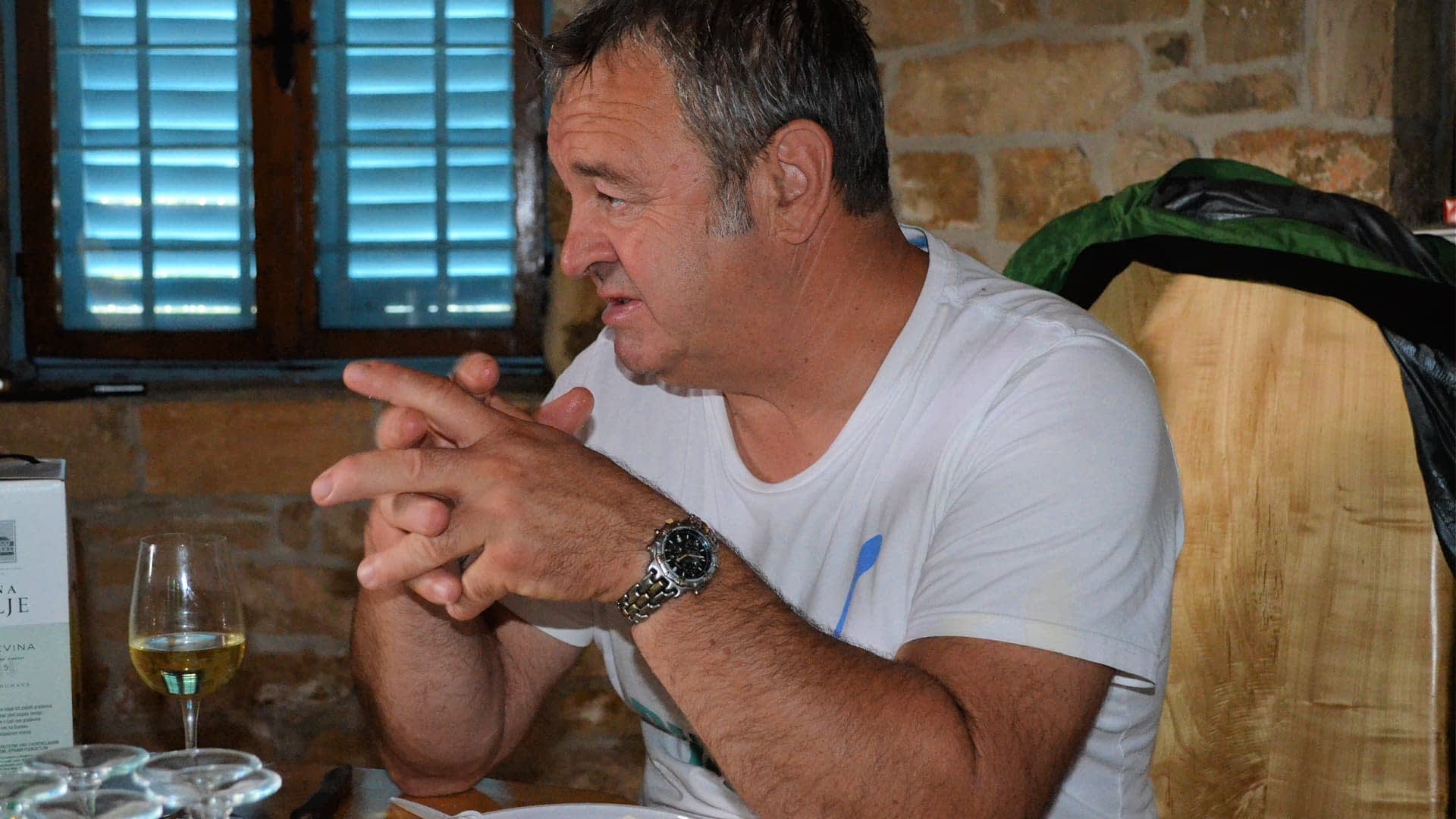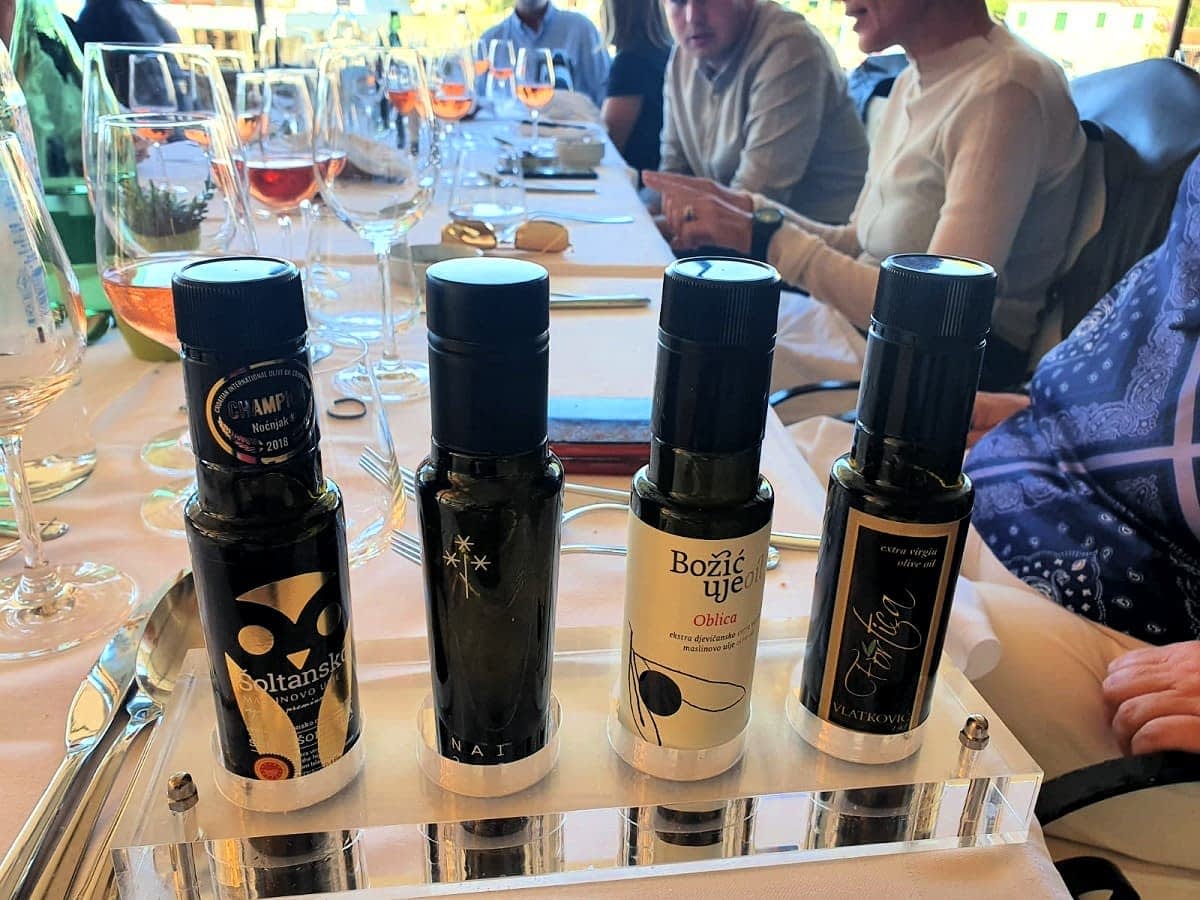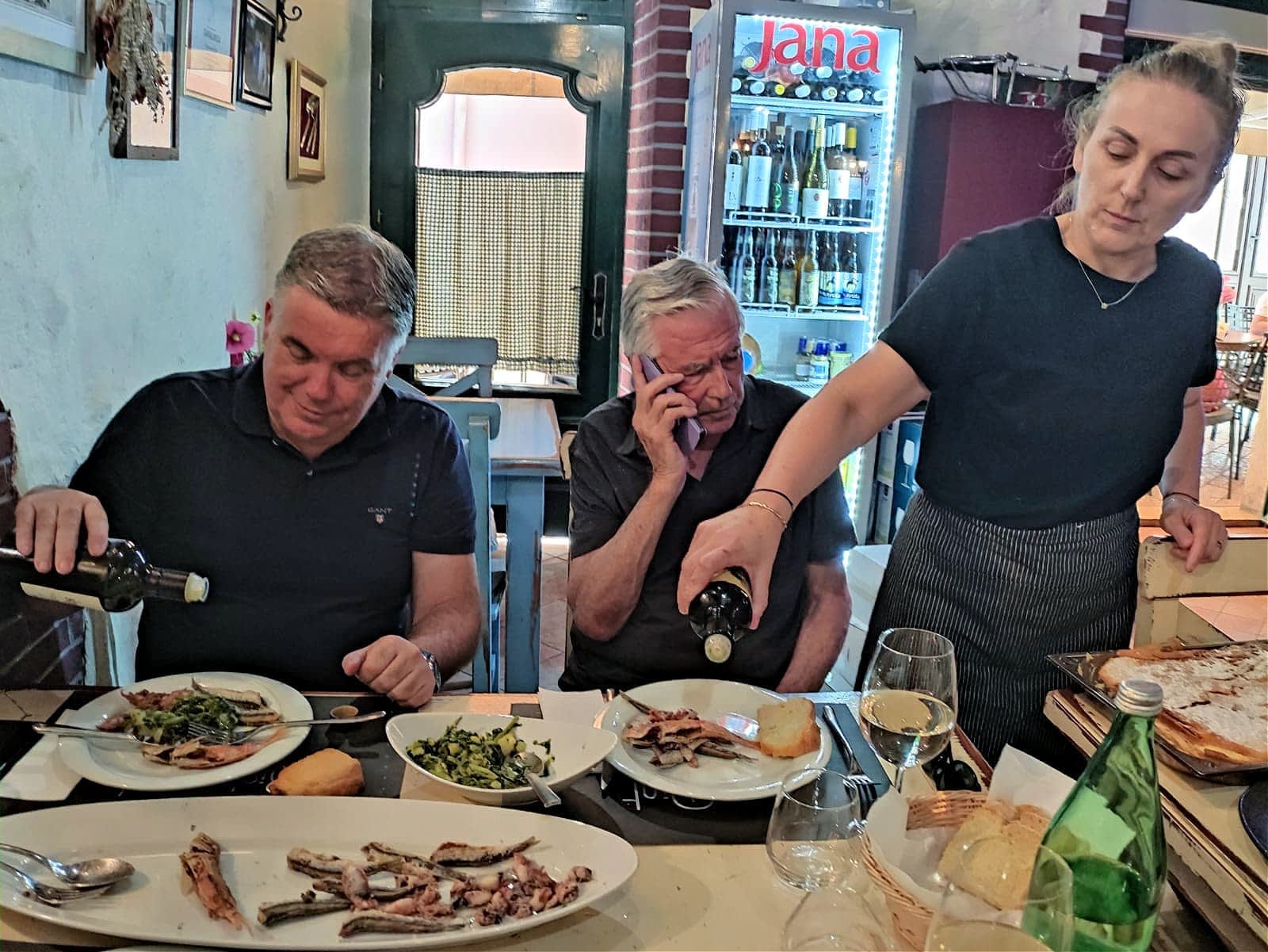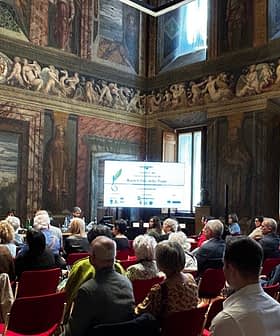Despite the rising profile of Croatian extra virgin olive oil on the international stage, restaurants in the country continue to serve lower-quality imported olive oils on their tables.
Olive growers in the country are increasingly debating why this is the case and whether it would be different if restaurants added a surcharge for serving local extra virgin olive oil.
I am absolutely against oil being charged separately in restaurants… Restaurants should show their guests what the right oil is, in terms of taste, and especially in terms of health.
“It is not easy to produce high-quality extra virgin olive oil, and it is even more difficult to find a consumer,” said Ivica Vlatković, an award-winning producer and president of a local olive grower association.
“That is why we need to change the practice in hospitality,” he added. “Kudos to the exceptions, but most of our restaurants and taverns do not yet offer high-quality domestic oils.”
See Also:In Greece, Olive Oil Remains Absent from Restaurant and Tavern TablesVlatković said he recently visited a restaurant in Jazine, a town in Zadar county, for the first time. While the food delighted him, Vlatković was less impressed by the olive oil and asked the restaurant owner why there was no locally-produced extra virgin olive oil to pair with her homemade delicacies.
The owner responded that it was too expensive to put out extra virgin olive oil bottles as if they were salt or pepper shakers.
Vlatković suggested that she place small olive oil bottles on each table instead of the usual 250 or 500-milliliter bottles.
“A small bottle of 100 milliliters with a pour spot could be served when the guests sit at the table before receiving their main dishes,” he said. “Briefly explain to them that it is an extra virgin quality oil they can use while the dish they are waiting for is served.”
Vlatković suggested that restaurant patrons use the olive oil with bread or their meals and take the rest of the bottle with them afterward. The cost of the olive oil bottle could be paid through a small cover charge on the final bill.
If the customers do not want to take the bottle, Vlatković said a smaller cover charge could be applied to the bill, and the olive oil could be brought back to the kitchen and stored for culinary purposes.

Award-winning olive grower Ivica Vlatković
He believes this is one of the best ways to develop olive oil culture and reduce the amount of adulterated and low-quality olive oil in circulation in the country’s bars and restaurants.
While some restaurants have opposed the idea of charging for the olive oil, Vlatković said this does a disservice to producers. He believes that giving the olive oil away for free implies it has no worth to those who make or sell it, which subconsciously impacts the consumer.
Unlike Vlatković, Petar Perković, a Dalmatian tourism official and an olive aficionado, has an opposite opinion about charging for olive oil.
“Restaurants should show their guests what the right oil is, in terms of taste, and especially in terms of health,” he said. “Then they should advise the guest which oil goes best with fish, meat, vegetables, etc. Let the guest learn, they will be grateful, but they should not be charged for it.”
Perković has traveled the world but said that only once, on the Croatian island of Pag a few years ago, was he charged for 100 milliliters of oil.
Perković said the waiter brought him fish without oil. When he asked for some olive oil, the waiter asked how much he wanted. “Well, as much as it takes,” Perković recalled. The waiter brought him a 100-milliliter bottle and charged him 30 Croatian Kuna (about €4 at the time).
“I am absolutely against oil being charged separately in restaurants,” Perković stressed. “A restaurant is neither a kiosk, store or OPG.”
Instead, Perković believes restaurants should offer extra virgin olive oil and explain to the guest its health benefits and organoleptic qualities.

There is no charge for oil in the restaurant Pjat.
Regardless of whether they believe diners should pay for it, the general consensus among producers is that restaurants should be extra virgin olive oil ambassadors and help build the culture in Croatia.
“Knowledge about good olive oil is missing,” said Perković, who has an olive grove in Ljubče, near Zadar, with 101 mostly local olive trees.
It is interesting to hear how successful restaurateurs also think about this.
Leo Mialić, the owner of Pjat in Zadar, offers guests three types of extra virgin olive oil free of charge.
“The oil reaches the table first,” Mialić said. When the guests are seated, he brings a plate and small pieces of bread to dip in the olive oil before the ordered dish arrives.
“I try to have three categories of oil: robust, medium and delicate,” he said.
In addition to Ol Istria from the olive groves of the Istrian Lagoon, there are also award-winning OPG Kutija oils and OPG Baradić from northern Dalmatia.
Pjat only serves traditional Dalmatian dishes made from meat from local butchers, vegetables from the market and fresh fish from the fishmonger.

Fresh and local is the formula that has brought the restaurant regular, mostly local guests, and new ones arrive every day.
“From abroad, guests from the Kolovare and Bastion hotels come on recommendation, and the landlords also recommend Pjat to those who ask where they can eat well,” Mialić said.
“Every day we prepare tripe, Venetian liver from lamb and calf liver, stews, stuffed peppers, eel brudet, fried fish from the day’s catch,” said Anita Mialić, Leo’s wife who cooks at the restaurant.
A lot of olive oil goes into all dishes and salads, but Mijalići does not charge for it.
“What is spent on salad seasonings and food ingredients, we try to calculate into the final price, based on purchase prices,” the couple said.
Mate Ražov, the owner of another restaurant, Maranovi Dvor in Sukošan, has a similar view. The only difference is that Ražov offers guests its award-winning extra virgin olive oil.
“Since the beginning, we have only offered homemade pizza, drinks and our own extra virgin olive oil,” said Ražov, who has 200 olive trees in full bloom in Škabrnja in Ravni Kotar. Half are of the Oblica variety, and the other half are Leccino and Pendolino.
With a yield of 15 percent from last year’s harvest, we got 600 liters of oil, Ražov said, adding that he expects even more oil from his olives in the coming years.
His oil recently won awards at two local competitions, but Ražov said he is not resting on his laurels.
“I don’t compete for prizes,” Ražov said. “My family and I do not perceive the championship cup as a victory or a prize but as a confirmation of the quality of work.”
Ražov does not charge extra for the extra virgin olive oil he serves at the restaurant.
Each table boasts an elegant bottle of 250 milliliters and other seasonings. The table settings leave the impression that its owner makes a special effort to bring extra virgin olive oils closer to guests.
“When they taste it, many guests want to buy a bottle,” Ražov said. “Especially sailors from the Zlatna Luka marina and others as well. For the most part, we have no problems with selling oil.”
The restauranteur has not considered charging for smaller individual bottles of olive oil to be brought home by each guest but warned that charging for olive oil could be a double-edged sword.
“I would rather donate the oil than sell it that way,” he said. Instead, Ražov reflects on the liberal use of olive oil in the cooking process and on the tables in the price of his menu items.
“It is important that the prices are realistic, that they correspond to the quality of what is offered, and that the guest is satisfied,” he added.
Extra virgin olive oils are just making their way into the hospitality industry. The experiences of Matan Dvori and Pjat can serve as an example and guide.
Both restaurants offer homemade delicacies, drinks and local extra virgin olive oil. They have a good reputation; they work all year round – not only during the tourist season, as many others do. With their quality, they attracted domestic and foreign guests, which is how they succeeded.
“This is reminiscent of the situation with local wines about 20 years ago,” Mialić said. “It didn’t work until young oenologists ‘broke the ice’ with their actions, clarifying how to produce, store, label and market quality wines.”
“When wine producers accepted the lesson, restaurateurs got involved little by little, so now quality domestic wines are no longer a rarity on the tables of catering establishments,” he added.









